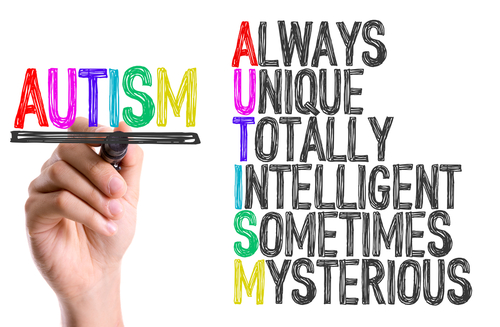ASD: Assessment & Therapy at ACPC

Autism spectrum disorder (ASD) is a neuro-developmental disorder, which is characterised by difficulties in social communication (verbal/non verbal) which impacts social interactions, routines and repetitive behaviours, circumscribed interests, and/or sensory sensitivities.
All children diagnosed with ASD have a wide range of difficulties and abilities. Some kids and teens with ASD have very impressive skills and strengths. One child with ASD might be gifted, highly verbal and have a very good memory. Another child might be an excellent artist or a gifted visual learner or have excellent computational skills. Despite their strengths, kids and teens with ASD struggle in their social and emotional development and require ongoing intervention and support.
In Australia, Autism Spectrum Australia (Aspect) has revised its autism prevalence rates from 1 in 100 to an estimated 1 in 70 people in Australia on the autism spectrum. ASD affect almost four times as many boys than girls. However, many girls do have ASD, but learn to mask their challenges through imitation and practice.
ACPC is a reputable provider in the assessment, diagnosis and treatment of individuals with an Autism Spectrum Disorder (including Asperger's Syndrome). and receives a high number of referrals from various sources including Paediatricians, General Practitioners, Allied Health Professionals (Speech & Occupational Therapists) as well as schools and preschools.
A comprehensive assessment is conducted with famiilies for the purpose of creating an intervention plan specific to the individual needs of your child, adolescent and family. The assessment and therapy process usually includes:
- Standardised assessment and screening measures that assesses social, emotional, and behavioural developmental issues associated with Autism Spectrum Disorder
- Gold standard therapeutic interventions derived from evidence based research specific to ASD
- Pre and post outcome measures to enhance treatment outcomes.
- Practitioners tend to share a special interest in Autism Spectrum Disorders, and aim to deliver services whilst ensuring that they are up to date on the research and evidence based therapies within this area.
Following the comprehensive assessment process (as needed), practitioners adopt several innovative and creative strategies to increase their client's attention and engagement during therapy sessions. Not only are ACPC practitioners competent in delivering suitable evidence based interventions that will keep clients engaged throughout sessions, whilst keeping the therapy goals in mind, but they are also well informed of the many special interests that kids and teens with ASD may have!
This ultimately leads to building an effective rapport building with kids and teens, whilst implementing evidence based therapies and thus maximising outcomes during therapy sessions.
In addition, ACPC practitioners invest in ensuring that parents are being are supported through seperate parent coaching sessions. These sessions are valuable in ensuring that parents feel confident and more equipped in understanding and managing their child's potential difficulties.
For further information about our services, please visit our services page



